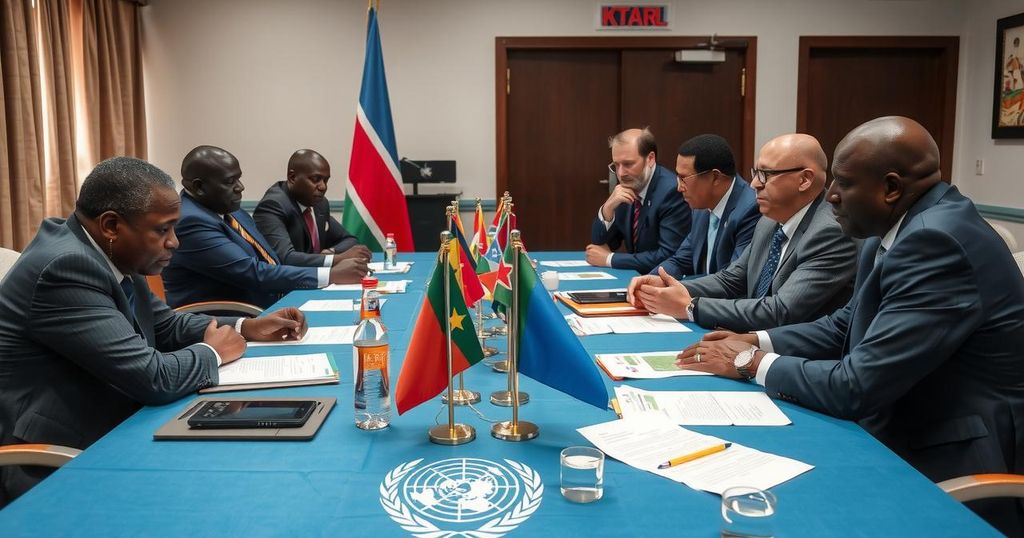The UN Commission on Human Rights in South Sudan is visiting Nairobi to engage with stakeholders on promoting human rights and ensuring accountability for violations in South Sudan. Led by Yasmin Sooka and Barney Afako, the delegation will discuss critical issues with Kenyan officials and civil society, focusing on justice and transitional measures in the peace process.
A delegation from the United Nations Commission on Human Rights in South Sudan has embarked on a five-day visit to Nairobi, Kenya, aimed at engaging with diverse stakeholders to promote human rights and accountability concerning violations in South Sudan. The delegation, led by Chair Yasmin Sooka and member Barney Afako, plans to meet with high-ranking Kenyan government officials, international organization representatives, and civil society members to discuss various pressing issues.
Discussions during this visit will revolve around the necessity of safeguarding human rights and preventing further deterioration in South Sudan. The Commission is expected to underscore the critical role of justice and accountability within the peace process. Furthermore, it will seek robust regional support for South Sudan’s transition, particularly highlighting Kenya’s influential role as a guarantor of peace efforts. The Commission is advocating for the establishment of an independent judicial system in South Sudan, aligning with the Judicial Review Commission’s recommendations to strengthen effective institutions that uphold the rule of law.
The Commission aims to connect with stakeholders engaged in the ongoing Tumaini Initiative mediation dialogue, which is focused on reconciling the Government of South Sudan with hold-out groups from the 2018 Revitalized Agreement for Resolution of Conflict in South Sudan (R-ARCSS). The Commission will promote the incorporation of transitional justice elements into these discussions, emphasizing the need for accountability, truth-telling, and redress for victims, elements vital for achieving lasting peace.
Established in March 2016 and renewed annually, the Commission on Human Rights in South Sudan is an independent body authorized by the United Nations Human Rights Council. The three Commissioners operate independently as experts and are not employees of the United Nations. Their work, supported by a Secretariat in Juba, seeks to investigate human rights situations, recommend improvements, and determine the facts surrounding human rights violations, including identifying responsible parties. The Commission relies on independent interviews with victims, witnesses, and experts to inform its findings and recommendations.
The United Nations Commission on Human Rights in South Sudan, formed in 2016, functions as an independent entity tasked with investigating human rights issues within the country. This body aims to recommend ways to prevent deterioration in the human rights situation and push for compliance with national and international laws. Similarly, the Tumaini Initiative represents a concerted effort to mediate between the government and dissenting factions to achieve a peaceful resolution to the ongoing conflicts in South Sudan, which have persisted since the civil war erupted.
The UN Commission on Human Rights in South Sudan’s visit to Nairobi underscores the urgent need for advancing human rights and establishing accountability mechanisms in South Sudan. By engaging with Kenyan officials and civil society, the Commission aims to promote justice as an integral component of peace efforts, crucial for facilitating a stable and just transition in South Sudan. Overall, the delegation’s focus on transitional justice reflects a commitment to ensuring the rights and needs of victims are central to peace negotiations.
Original Source: www.radiotamazuj.org







